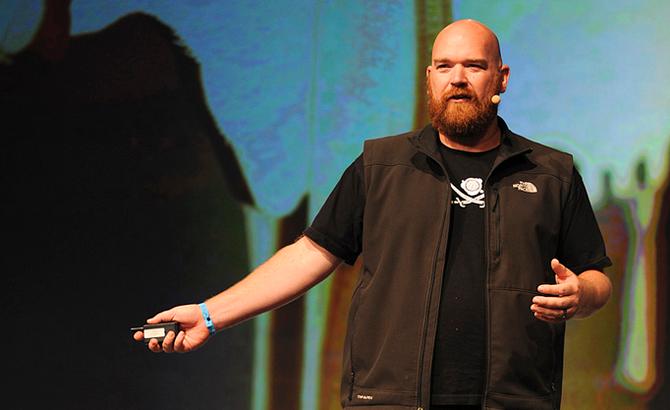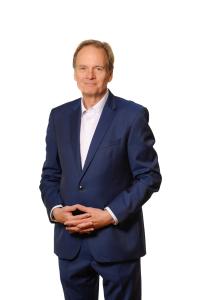By Katharina Gorges, intern at KAS Media Africa
Among the participants and speakers from more than 50 countries, one particular person caught the eye - he was to shape the opening keynote of this year’s conference. At first, one would rather associate heavy equipment or garage-tools with Erik Hersman, who refers to himself as a “white African”. When this big, strong Sudanese-native started to speak on stage, one immediately felt his passion for innovation and digital progress. He has been a blogger and internet activist for about eight years now.
Africa is gripped by a wave of innovative developments
Hersman lives in Nairobi, one of Africa’s leading innovation centres. In order to foster the city’s huge technical and innovation potential he founded iHub in 2010. iHub is an interactive and open community facility where young entrepreneurs and inventors can assemble and develop new ideas and projects, as well as contact potential investors and partners. By now, more than 150 organizations are networked through iHub, offering promising newcomers a wide range of support such as consulting, technical and market research.
Right at the beginning of his speech, Hermsan dismissed the prejudice of the innovatively undersized and violent Africa of the 80’s and 90’s, and criticised the absence or reluctant investments of potential sponsors. He believes that challenges such as the shortage of material and long-term power outages actually enable the people to creatively and spontaneously devise advancements in the technological field.
“Whoever designed it, deserves an award”
He showed a picture of an office building that was completely constructed out of old shipping containers stacked on top of each other. Defect or detached walls were replaced by glass panes and a big poster board covered one side. What looks like a modern architectural project originally arose out of emergency. Projects like this are sponsored by a Kenyan technology-freak and his iHub in order to bring adventurous creators to the IT-sector.
Are you a villager?
Expensive or lack of material complicate the practical implementation of visions and projects. Additionally, high barriers for company formations and shortage of investments cause a lot of early failures. That’s why the community in which the project is to be implemented plays an essential role. This idea is also positioned in iHub’s slogan - Technology, Innovation, Community.
Hersman had already internalized this notion in his early childhood. He wanted to build a solid hut but there was a need for a special grass that grew 50km away from his home village. To enable the construction, the help of the whole village was requested. So the inhabitants figured out a strategy for an effective and fast transport that ended up in the finishing of the hut in only a few weeks.
The allocation of infrastructure is fundamental
Hersman emphasized the need for international cooperation. People in Africa are especially dependend on the allocation of infrastructure and material from abroad. But besides the international exchange of material, he added that knowledge and ideas are a lot more important. He continued talking about Africa exporting a few innovative products to Europe and America recently, which where adopted very well.
To demonstrate this, he told the story of his co-funded crowd-sourcing website “Ushahidi” that was originally created during the 2007 Kenyan elections. The functionality to track and report violence all over the country had been modified recently for a lot of different purposes. In 2009 for example, the digital map was used to gather evidence and information about violence and corruption during the political crisis in Madagascar, also to control and supervise the presidential elections in Afghanistan.
Supporting the internet-culture
KAS Media Africa is aware of the enormous potential of net-based innovations and possibilities. One of the projects co-funded by the media programme is the “African News Innovation Challenge” (ANIC) which advances the networking of information technology and journalism by means of a competition. One of last year’s winners is AfricanDrone, a pilot project sending out drones equipped with cameras in order to ensure that news coverage reaches outlying areas or dangerous situations. All of the winning projects not only get financial support but also assistance with long-term marketing campaigns and mentoring programmes.
A total of 20 innovative projects were decorated last year, be it digital applications to expose corruption, info-graphics to illustrate complex issues or the usage of screens in public transport to improve the people’s exposure to recent news.
Innovation kills the status quo. Wherever innovation happens, life changes and the balance of power reversed. But innovation always presumes that someone feels the urge to change. The fact that Africans supply their needs very determinately despite difficult circumstances shows that this continent is able to be more than the pictures of civil war and famine imprinted in people’s minds. That’s why it is all the more important to support Africans’ creative ideas with essential resources and to let them flourish.





